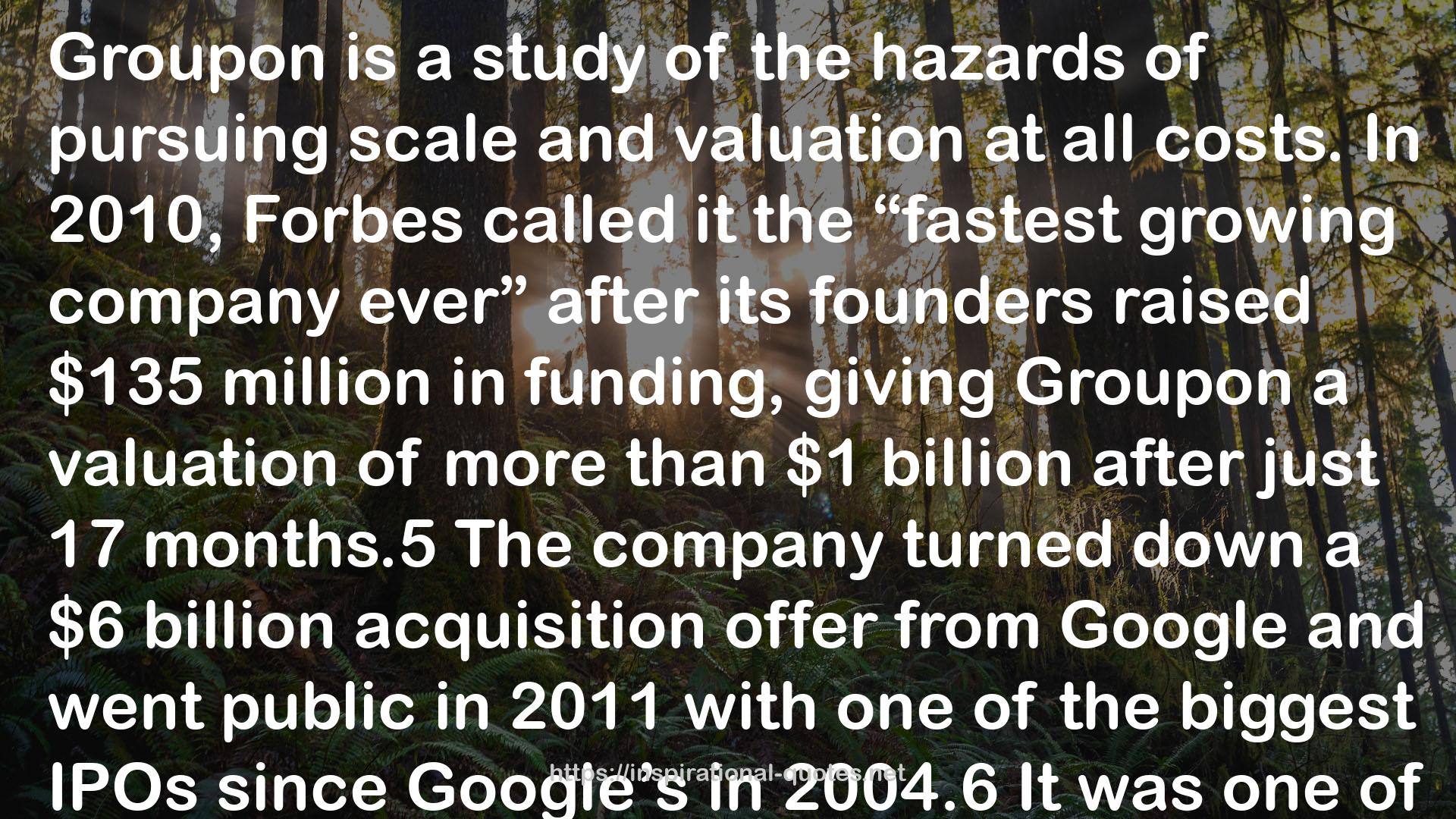" Groupon is a study of the hazards of pursuing scale and valuation at all costs. In 2010, Forbes called it the “fastest growing company ever” after its founders raised $135 million in funding, giving Groupon a valuation of more than $1 billion after just 17 months.5 The company turned down a $6 billion acquisition offer from Google and went public in 2011 with one of the biggest IPOs since Google’s in 2004.6 It was one of the original unicorns. However, the business model had serious problems. Groupon sometimes sold so many Daily Deals that participating businesses were overwhelmed . . . even crippled. Other businesses accused Groupon of strong-arming them to sign up for Daily Deals. Customers started to view the group discount (the company’s bread and butter) as a sign that a participating business was desperate. Businesses stopped signing up. Journalists suggested that Groupon was prioritizing customer acquisition over retention — growth over value — and that it had gone public before it had a solid, proven business model.7 Groupon is still a player, with just over $3 billion in annual revenue in 2015. But its stock has fallen from $26 a share to about $4 today, and it has withdrawn from many international markets. Also revealing is that the company is suing IBM for patent infringement, something that will not create customer value.8 Many promising startups have paid the price for rushing to scale. We can see clues to potential future failures in the recent “down rounds” (stock purchases priced at a lower valuation than those of previous investors) hitting companies like Foursquare, Gilt Group, Jet, Jawbone, and Technorati. In their rush to build scale, executives and founders search for shortcuts to sustainable, long-term revenue growth. "
― Brian de Haaff , Lovability: How to Build a Business That People Love and Be Happy Doing It
